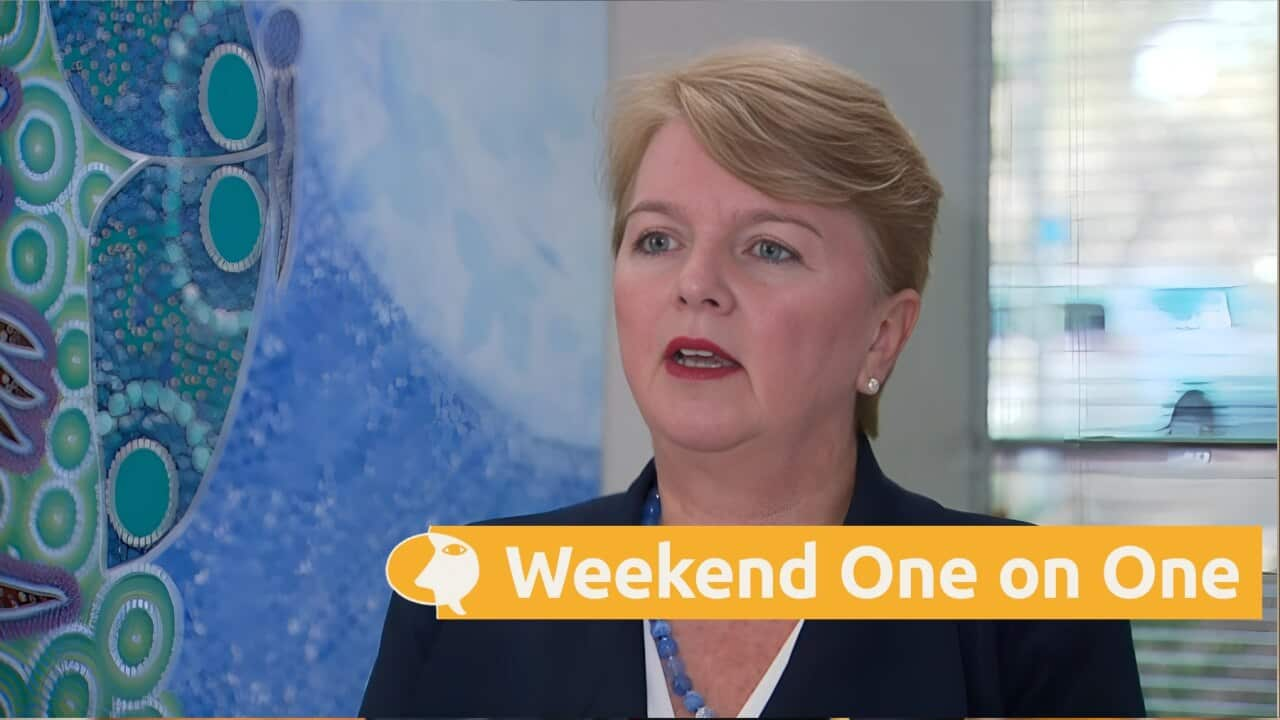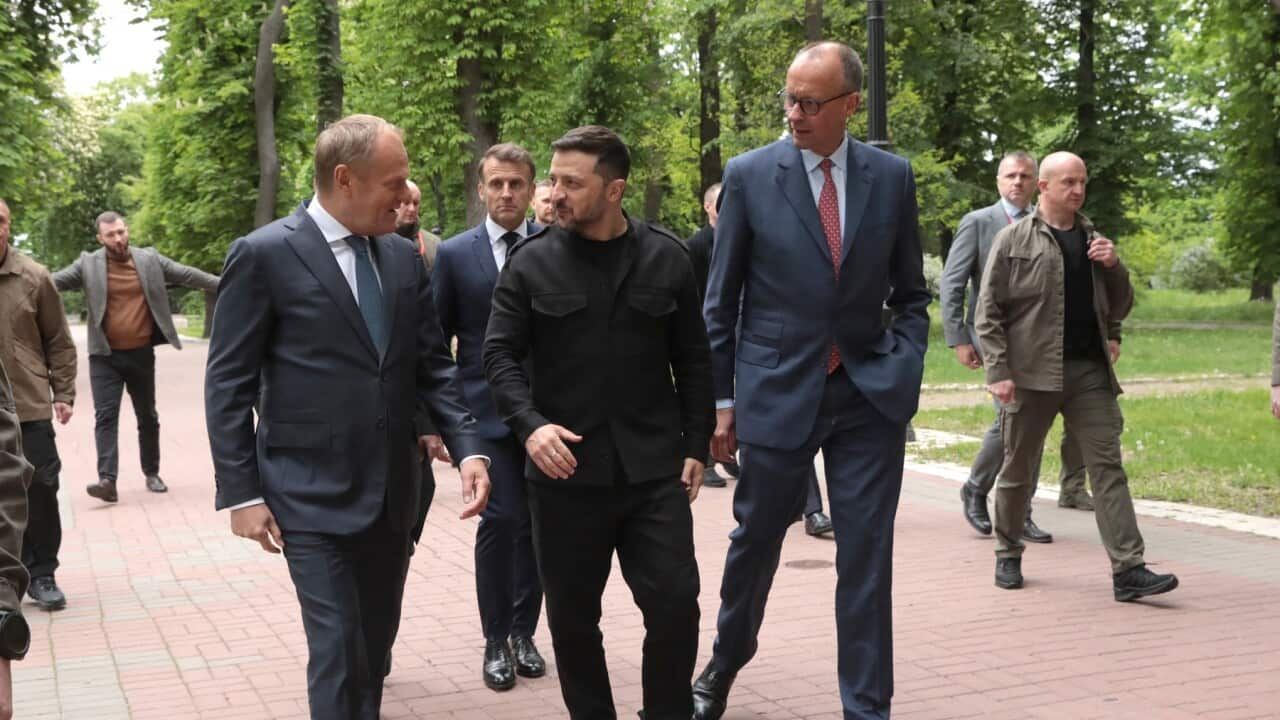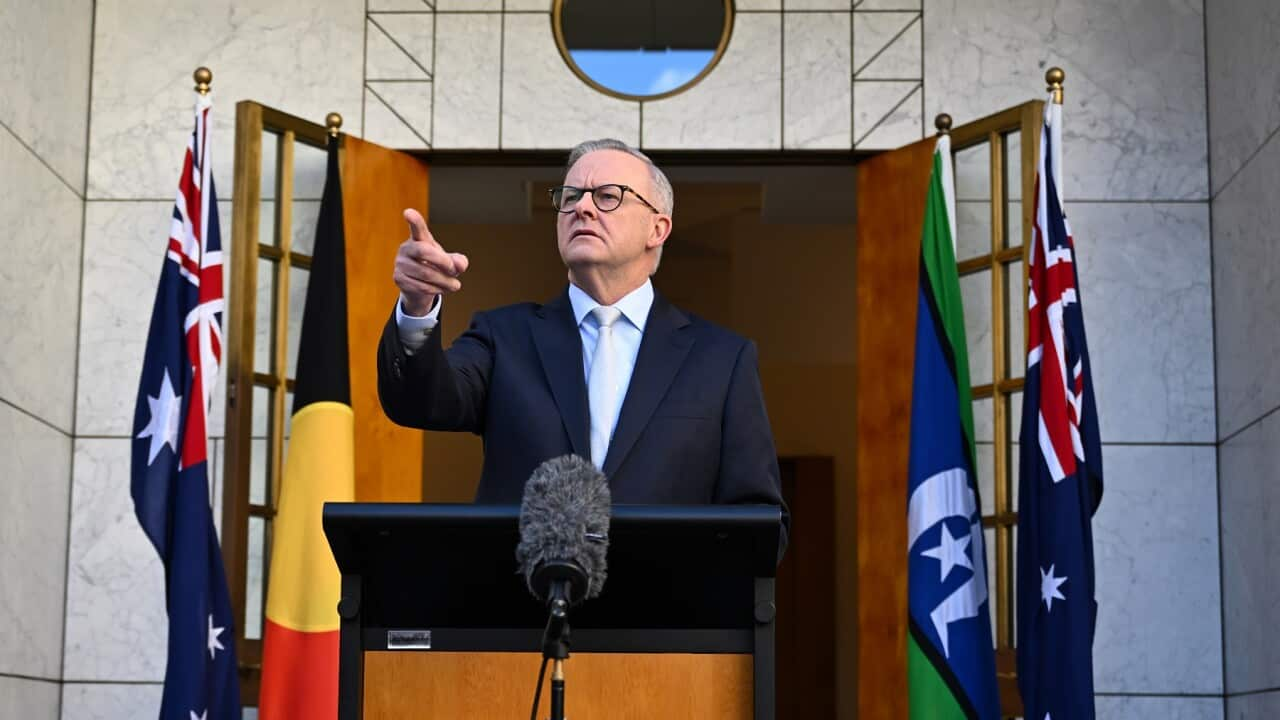TRANSCRIPT
Sudan has entered its third year of war and devastation.
And along with the civil war, the world's largest humanitarian crisis continues to unfold with nearly 13 million people displaced by violence and two thirds of the population - over 30 million people - in desperate need of aid.
Fatma Ahmed and her 11-year-old daughter Rahaf have been displaced from Sudan's capital Khartoum to a tent in Port Sudan.
Rahaf has lost her hearing due to the constant sound of bombs - something her mother says has only exacerbated their struggles.
"The hearing loss has affected her. Last year we enrolled her in a school here and she couldn’t hear. When she sat in the front rows, the girls made her sit at the back rows and she couldn’t hear in the back. They bullied her, so she said she doesn’t want to go to school because of these circumstances. We are currently dealing with her hearing problem and seeking hearing aids, and God is the helper."
(Sounds of gunshots. Fade up and under as needed.)
Since fighting broke out between Sudan's army and the paramilitary Rapid Support Forces on the 15th of April 2023, the power struggle has killed up to 150,000, according to some estimates.
Last month, the Sudanese Armed Forces gained ground and forced the RSF out of the capital Khartoum after two years of battling.
Sheldon Yett, the UNICEF Representative in Sudan, says aid is finally beginning to flow through to the region.
"It is getting through but not enough and the needs remain massive. And I think that, that’s the key here. As more and more neighborhoods open up, as Khartoum opens up, I shudder about, to think about what we're going to see and how great the needs are. This was the epicentre of, one of the epicentres of conflict; and we know that conflict leaves tremendous needs in its wake."
Some of the worst crimes seen amid the war have been systemic sexual violence against Sudanese women and girls.
Anna Mutavati is the UN Women Regional Director for East and Southern Africa. She says over 12 million are at risk of gender-based violence.
"We have seen a 288 per cent increase in demand for life-saving support following rape and sexual violence. We've also seen what is beginning to look like systematic use of rape and sexual violence as a weapon of war. We have seen women's lives and women’s bodies being turned into battlegrounds in this conflict."
As the RSF militants have been forced to retreat from the capital, the group has been tightening their grip over the western Darfur region where their fighters have been accused of genocide by the United States.
Over the weekend (11-13 April), RSF fighters and their allies rampaged in two refugee camps in the western Darfur region, killing at least 300 civilians and displacing up to 400,000.
In Sydney, Mohamed Elday says he has lost at least 13 family members amid the attacks on the famine-hit Zamzam refugee camp.
He says he has no doubt that his community, the Zaghawa tribe, is being targeted as they were in the mass killings of the early 2000s, for which the ICC (International Criminal Court) is pursuing charges of genocide.
"One of my second cousins recently passed away from the ethnic killings. She was passed away at just 12 years old. Her name was Mera. For my own family, we feel like we are racially targeted and discriminated against. Most definitely it's a genocide. It's not just an attack on my people but Darfur as a whole. Fur, Masalit, Zaghawa - all of us. It's an attack on all."
Mariam Mohamed Ahmed fled Darfur's city of El-Fasher to the town of Tawila with her children.
She says her kids have been affected by severe hunger.
"We had to flee because of the fighting and came up here in Tawila. We have nothing to eat — it’s so hard on us. We need many things — shelter from the rain, protection from mosquitoes. We need food and water. My child here is suffering from malnutrition. I brought him to this centre for help when he was just one-and-a-half months old. His condition was very bad at first, but after receiving treatment at the health centre, he’s getting better. Everyone helped us. They gave us energy biscuits — two every morning and one in the afternoon. Now, he’s much better."
But Sean Hughes of the U-N World Food Program says a decreasing global supply of funds and aid is leading to the further spread of famine throughout Sudan.
"Sudan has now become the world's largest hunger crisis. Nearly half the population are acutely food insecure. Famine has taken hold in parts of Darfur and is spreading. All these challenges are coming at a time when resources for humanitarian response globally are reducing. We know that it is not possible to stop a famine with food alone. You need health care. You need water. You need sanitation. So the whole response needs to be well supported in order to be able to turn this around - and stem the tide of famine."
In London, diplomats and aid officials from around the world have met to try to facilitate the delivery of more aid and push for peace in Sudan.
The United Kingdom's Foreign Minister, David Lammy, says the international community must apply more pressure on the Rapid Support Forces and the Sudanese army to put aside their ambitions in pursuit of peace.
"Today, I'm announcing a further 120 million pounds worth of support. But the biggest obstacle is not a lack of funding or text at the United Nations. It's a lack of political will. Very simply, we have got to persuade the warring parties to protect civilians, to let aid in and across the country and to put peace first."













